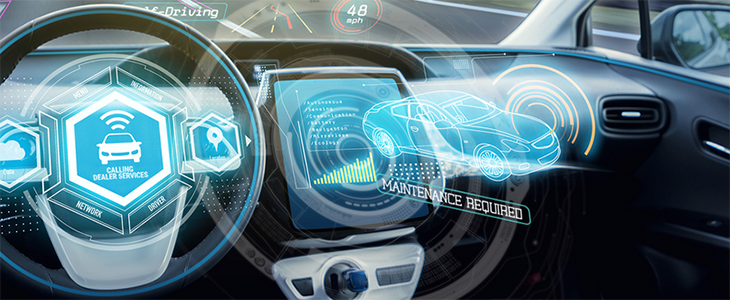
Legal Challenge Looms After Overwhelming Passage of 2020 Massachusetts Right to Repair Law Update
As most in the aftermarket around the country and especially in Massachusetts know by now, The Right to Repair Coalition’s 2020 referendum passed on November 3rd with overwhelming public support. With the passing of Question 1, a staggering 75% of voters made their voices heard loud and clear: We demand the right to choose the shop that repairs our vehicles whether diagnostic data is transmitted via the OBD port or wirelessly. With the advent of telematics technology, it is critical that the aftermarket does not allow automakers to retain exclusive access to important diagnostic repair data. They should also not be permitted to force independent repair facilities to pay big fees for access to the data stream via proprietary applications – something that has been a problem since the inception of telematics. The very survival of the aftermarket, at multiple levels, is at stake.
Alliance for Automotive Innovations Sues Massachusetts
In a lawsuit filed on November 20th in U.S. District Court for the District of Massachusetts, The Alliance for Automotive Innovation has asked the court to “temporarily and permanently” block implementation of the law, which was supposed to take effect on December 3rd. At the time of this writing, it is unclear as to whether or not the court has done anything to block implementation of the update.
Unrealistic Implementation Timeline?
In their November 20th filing, the Alliance seeks to “temporarily and permanently” block the law, but the crux of their argument seems to be the alleged unrealistic timeline that’s been set out for them – meaning a temporary block is the more likely outcome if any action is taken at all. There are two parts to the timeline issue: One is the lead-time required to develop the open-access data sharing platform and the other is the fact that vehicle research, design, engineering and manufacturing usually happens within a span of 3-5 years – meaning most 2022 model year vehicles are already in production and ready to hit dealer lots.
Executive Vice President of the Massachusetts State Automobile Dealers Association, Robert O’Koniewski, told Automotive News that the timeline is just not realistic. O’Koniewski claims that automakers take 3-5 years on average for the research, design and development of new vehicles. This issue is compounded by what they claim is the typical development lead-time of up to 5 years to complete the open-access platform that the law would require.
Delay Sought
At this time the minimum goal for O’Koniewski and other dealers in Massachusetts is to convince legislators to amend the law to delay implementation until at least model year 2025. This new timeline would be on par with the time that was allowed for the implementation of the original 2013 Right to Repair law – implemented in 2018. According to the Alliance for Automotive Innovation, this would give automakers the ability to factor the requirements of the new law into their plans for model year 2025 vehicles while also ensuring the safety and functionality of the open-access wireless data sharing platform.
The Aftermarket: We’re Not Buying It
For many in the aftermarket, it’s awfully difficult to reconcile the Alliance’s logic with what we know about technology and telematics in particular. There’s just no merit to the idea that the requirements of the new law would somehow be a problem for 2022 vehicles that are already in production and set to hit dealer lots in 2021. Here’s why:
1. The computer hardware is already there and capable of doing exactly what the law requires
The Alliance claims that the timeline for implementation that has been established by the state is not realistic because vehicles take 3 to 5 years to hit dealer lots from concept to production. What’s their point? Telematics computer hardware is already readily available on many vehicles currently on the road and we have no doubt that the same hardware is already included with the model year 2022 vehicles that are in production. It’s a moot point. It’s not a planning issue. It’s not an engineering issue. It’s not a production issue. It’s not a technology issue. IT’S A STALL TACTIC.
2. Claim that the open-source platform would take 5 years to develop and implement is absolute absurdity
The year is 2020 and a rather basic open-source platform for wirelessly transmitting data no longer takes 5 years to develop and implement. In fact, the technology already exists. It’s just a matter of standardizing, properly securing, and pushing it to vehicles over the air (OTR) when ready. We have little doubt that if the biggest names in automotive manufacturing make a concerted effort, they can easily meet the state’s requirements. But, yet again they’d rather resort to stall tactics as they plan new ways to overturn the will of the people. You’d think Big Auto might’ve learned by now that they can’t infringe on consumers’ right to repair their vehicles wherever they want.
We will update the status of this case as more information becomes available.
Tags: 2020 election, Massachusetts, question 1, right to repair, telematics
Categories: Aftermarket InsightsShare this entry